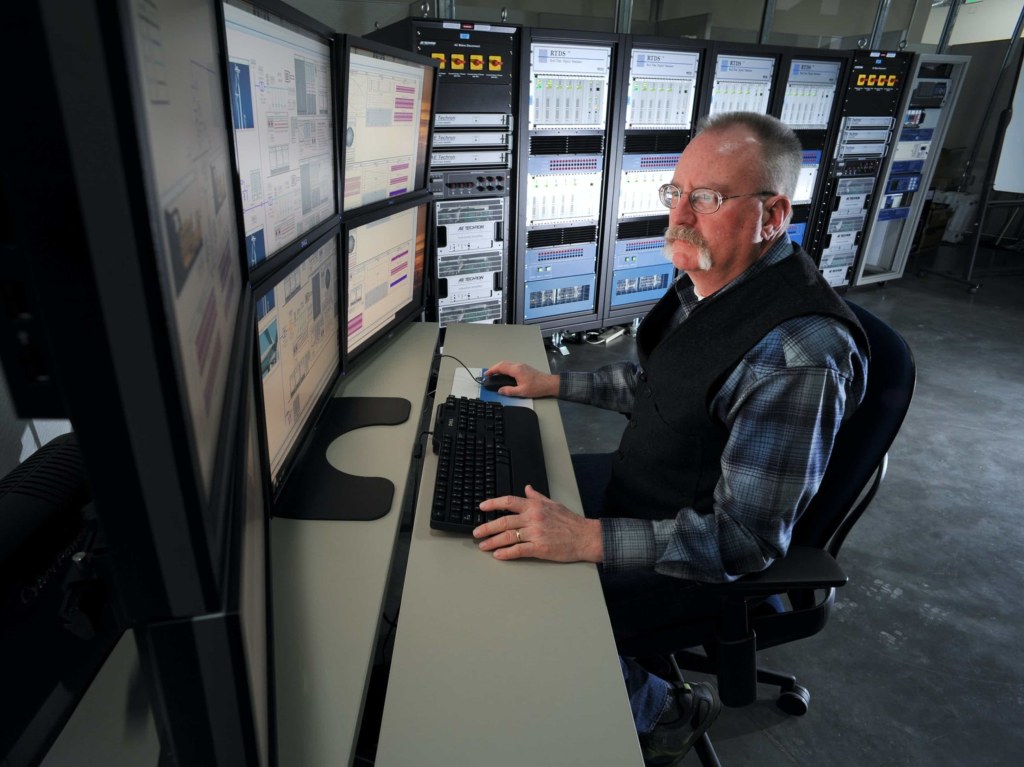Desktop Computer Job Profile
Greetings, Readers! In this article, we will delve into the fascinating world of desktop computer job profiles. As technology continues to advance at a rapid pace, the demand for individuals skilled in desktop computer jobs has skyrocketed. So, whether you are a seasoned professional looking to switch careers or a fresh graduate exploring your options, understanding the intricacies of desktop computer job profiles is crucial. Let’s dive in and explore this exciting field!
Introduction
Before we get into the details, let’s start with a brief overview. Desktop computer job profiles refer to a range of roles and responsibilities related to the management, maintenance, and troubleshooting of desktop computers. These jobs are crucial for ensuring the smooth functioning of computer systems in various industries, including IT, finance, healthcare, and more.

Image Source: betterteam.com
Now, let’s take a closer look at the different aspects of desktop computer job profiles:
What is a Desktop Computer Job Profile? 🖥️
Desktop computer job profiles encompass a wide array of roles, including system administrators, technical support specialists, network administrators, and software developers. These professionals are responsible for ensuring the proper functioning of desktop computers, networks, and software within an organization. They play a vital role in troubleshooting technical issues, optimizing system performance, and ensuring data security.
Responsibilities of Desktop Computer Job Profiles
The specific responsibilities of professionals in desktop computer job profiles may vary depending on their roles. However, some common tasks include:

Image Source: betterteam.com
Installing and configuring computer hardware and software
Performing system upgrades and updates
Troubleshooting hardware and software issues
Maintaining network and system security
Backing up and restoring data
Providing technical support to end-users
Collaborating with other IT professionals to ensure system integrity
Skills Required for Desktop Computer Job Profiles
To excel in desktop computer job profiles, professionals need to possess a range of technical and interpersonal skills. Some essential skills include:
Strong knowledge of computer hardware and software
Excellent problem-solving and troubleshooting abilities
Understanding of network protocols and configurations
Knowledge of data backup and recovery procedures
Effective communication skills
Ability to work well in a team
Attention to detail and strong organizational skills
Who Can Pursue a Career in Desktop Computer Job Profile? 🚀
One of the great things about desktop computer job profiles is that they are accessible to individuals from various educational backgrounds. Whether you hold a degree in computer science, information technology, or have gained relevant certifications, you can pursue a career in this field. Additionally, individuals with a passion for technology and a willingness to learn can also enter the world of desktop computer job profiles through self-study and practical experience.
Educational Qualifications for Desktop Computer Job Profiles
While a specific degree is not always mandatory, having a formal education in computer science, information technology, or a related field can significantly enhance your chances of securing a desktop computer job. Some common educational qualifications include:
Bachelor’s degree in computer science or information technology
Associate degree in computer programming or networking
Relevant industry certifications, such as CompTIA A+, Microsoft Certified IT Professional (MCITP), or Cisco Certified Network Associate (CCNA)
Career Paths in Desktop Computer Job Profiles
The diverse nature of desktop computer job profiles offers numerous career paths for professionals. Some common career paths in this field include:
System Administrator
Network Administrator
Technical Support Specialist
Software Developer
IT Manager
Database Administrator
Information Security Analyst
When and Where to Find Jobs in Desktop Computer Job Profile? 🌍
With the increasing reliance on desktop computers in various industries, job opportunities in desktop computer job profiles are abundant. Whether you are looking for opportunities in large corporations, government organizations, or small businesses, you are likely to find suitable positions. Job boards, professional networking platforms, and company websites are excellent resources for finding desktop computer job opportunities.
Job Market Outlook for Desktop Computer Job Profiles
The job market for desktop computer job profiles is projected to grow steadily in the coming years. As businesses continue to adopt new technologies and expand their digital presence, the demand for skilled professionals in this field will continue to rise. Staying updated with the latest technological advancements and continuously upgrading your skills can give you a competitive edge in the job market.
Why Choose a Career in Desktop Computer Job Profile? 💼
There are several compelling reasons to consider a career in desktop computer job profiles:
High demand: The increasing digitalization of businesses ensures a constant demand for skilled professionals in desktop computer job profiles.
Job security: As technology becomes an integral part of every industry, professionals in desktop computer job profiles enjoy a high level of job security.
Lucrative salaries: The specialized skills and knowledge required for desktop computer job profiles often translate into attractive salary packages.
Continuous learning opportunities: The field of desktop computer job profiles is dynamic and constantly evolving, offering ample opportunities for professional growth and learning.
Challenges in Desktop Computer Job Profiles
While there are numerous advantages to pursuing a career in desktop computer job profiles, it’s important to be aware of the challenges as well. Some common challenges professionals in this field may face include:
Rapid technological advancements require continuous learning and skills upgrading.
The need to stay updated with the latest security threats and vulnerabilities.
High-pressure situations when troubleshooting critical issues.
Dealing with end-users who may have limited technical knowledge and require patience and effective communication skills.
How to Start a Career in Desktop Computer Job Profile? 🛠️
If you are considering a career in desktop computer job profiles, here are some steps to get started:
Educational Path
Obtain a relevant degree or certification in computer science, information technology, or a related field. This will equip you with the fundamental knowledge and skills necessary for desktop computer job profiles.
Gain Practical Experience
Internships, part-time jobs, and volunteering opportunities can provide valuable hands-on experience and help you develop your technical skills.
Build a Professional Network
Networking with professionals in the industry can open doors to job opportunities and provide valuable insights into the field of desktop computer job profiles. Attend industry events, join online communities, and connect with professionals on platforms like LinkedIn.
Continuous Learning and Skills Development
Stay updated with the latest advancements in technology and industry trends. Pursue certifications and attend workshops or training programs to enhance your skills.
Advantages and Disadvantages of Desktop Computer Job Profile
Advantages of Desktop Computer Job Profile
1. Job security in a rapidly advancing technological landscape.
2. Lucrative salary potential due to the specialized nature of the roles.
3. Continuous learning and professional growth opportunities.
4. The ability to work in various industries and sectors.
5. Contribution to the smooth functioning of organizations through technical support and troubleshooting.
Disadvantages of Desktop Computer Job Profile
1. Rapid technological advancements require continuous skills upgrading.
2. High-pressure situations when dealing with critical issues.
3. The need to stay updated with the latest security threats and vulnerabilities.
4. Potential challenges in effectively communicating technical concepts to end-users with limited technical knowledge.
5. The possibility of working outside regular business hours to provide support for system maintenance or emergencies.
Frequently Asked Questions (FAQ)
Q1: What are the career prospects for desktop computer job profiles?
A1: The career prospects for desktop computer job profiles are promising, with a steady growth in demand for skilled professionals in this field. As businesses increasingly rely on technology, the need for experts in desktop computer job profiles will continue to rise.
Q2: Is a degree in computer science necessary to pursue a career in desktop computer job profiles?
A2: While a degree in computer science can be beneficial, it is not always mandatory. Relevant certifications, practical experience, and continuous learning can also help you enter and excel in this field.
Q3: What are the essential skills for a desktop computer job profile?
A3: Some essential skills for desktop computer job profiles include strong knowledge of computer hardware and software, problem-solving abilities, understanding of network protocols, effective communication skills, and attention to detail.
Q4: Do desktop computer job profiles offer opportunities for career advancement?
A4: Yes, desktop computer job profiles offer ample opportunities for career advancement. With experience, additional certifications, and continuous learning, professionals can progress to managerial positions or specialize in specific areas of expertise.
Q5: How can I stay updated with the latest advancements in desktop computer job profiles?
A5: To stay updated, you can join industry forums, attend webinars, read industry publications, and pursue relevant certifications. Continuous learning and skill development are crucial in the constantly evolving field of desktop computer job profiles.
Conclusion
In conclusion, desktop computer job profiles offer exciting opportunities for individuals passionate about technology. The field encompasses various roles and responsibilities, providing a diverse range of career paths. While there are challenges to overcome, the advantages, such as job security, lucrative salaries, and continuous learning opportunities, make pursuing a career in desktop computer job profiles highly rewarding. So, if you have a knack for problem-solving and a passion for technology, consider exploring the world of desktop computer job profiles and embark on an exciting career journey!
Disclaimer: The information provided in this article is for informational purposes only and should not be construed as professional advice. The job market and requirements may vary depending on location and industry. Always conduct thorough research and consult with industry professionals before making career decisions.